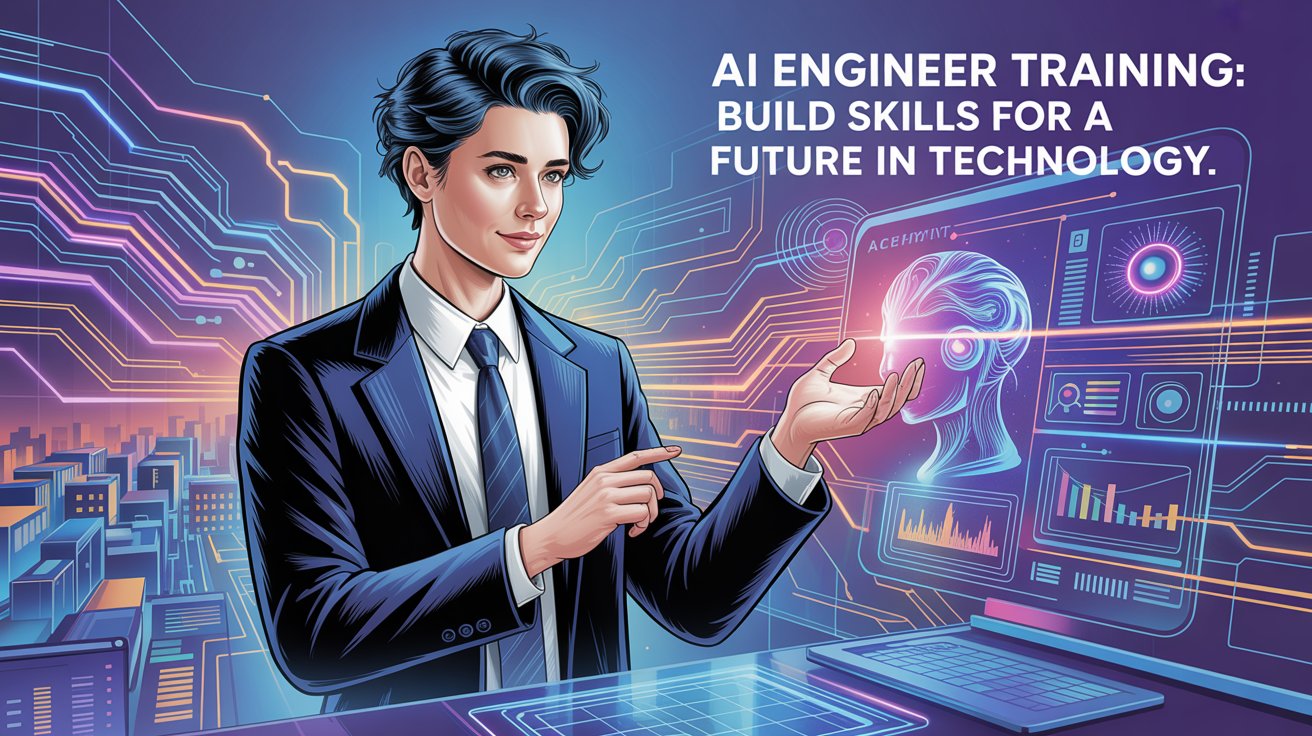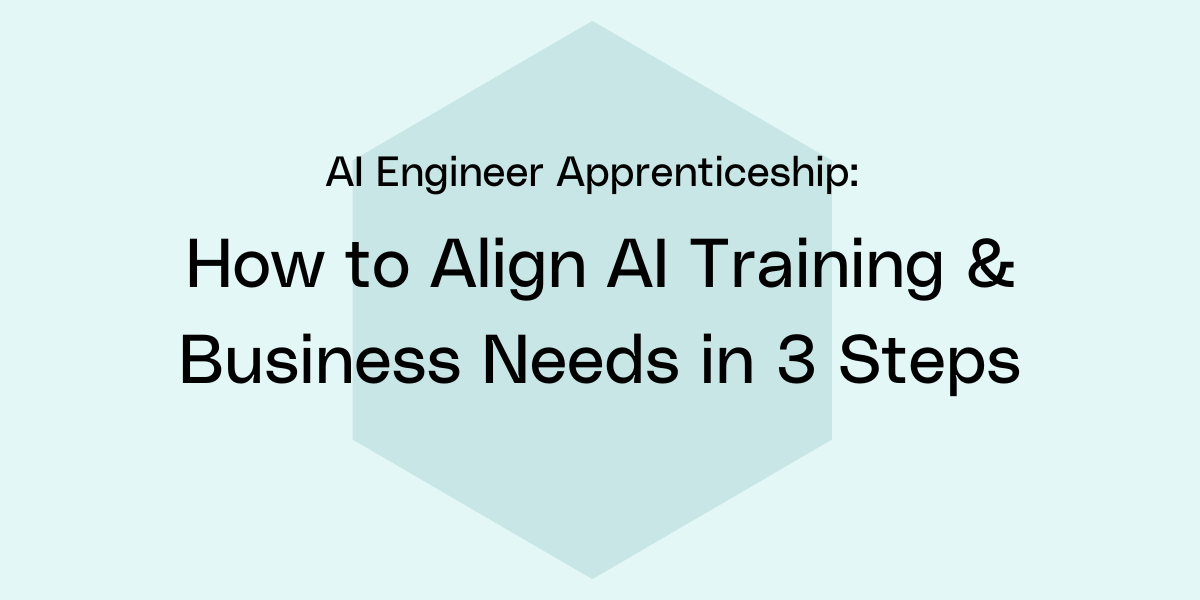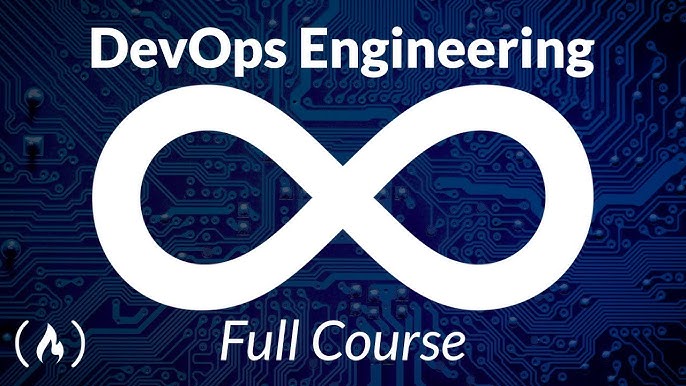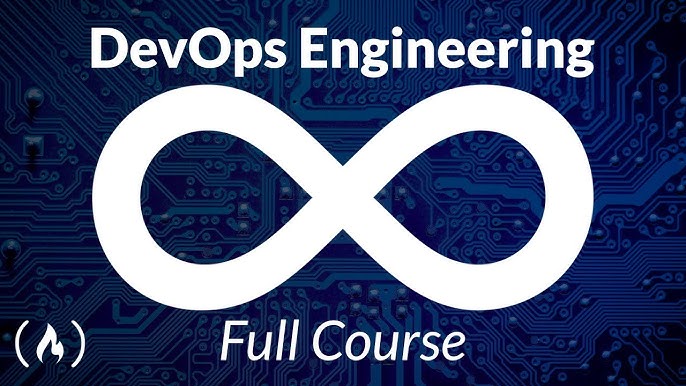AI Engineer Training Build Skills for a Future in Technology

AI Engineer Training Build Skills for a Future in Technology. Unlock your potential with AI Engineer Training: Build Skills for a Future in Technology. Gain essential skills for tomorrow’s tech landscape today!

Introduction to AI Engineer Training
The demand for skilled AI engineers is on the rise, as industries across the globe increasingly incorporate intelligent systems. My experience with AI Engineer Training: Build Skills for a Future in Technology has shown me that not only is the technology fascinating, but it is also essential for those looking to carve out a successful career in tech. The path to becoming proficient in artificial intelligence requires a commitment to education, practice, & staying updated with trends. In this article, we will delve into various aspects of training in AI engineering, focusing on how to build the necessary skills for a promising future in this field.
The Importance of AI in Modern Technology
Artificial Intelligence is transforming industries by automating processes, improving accuracy, & enabling smarter decision-making. AI applications range from simple task automation to complex systems that analyze data & learn from it. Key sectors benefiting from AI include healthcare, finance, marketing, & transportation. As companies adopt AI technologies, the demand for skilled professionals continues to grow. This presents a clear opportunity for aspiring engineers to secure rewarding jobs. For those considering AI Engineer Training: Build Skills for a Future in Technology, understanding how AI can streamline operations & enhance productivity is critical.
Enhancement of efficiencies in various sectors
Better quality of services & products
Automation of mundane tasks
Data analysis & insights generation
Skills Required for AI Engineers
To establish a strong foundation for a career in AI engineering, several core skills must be mastered. These skills cover a variety of technical & soft areas, essential for both understanding AI technology & effectively communicating with teams across different disciplines. Technical skills include programming, data handling, & familiarity with machine learning algorithms. Soft skills such as problem-solving, creativity, & teamwork are equally crucial.
Skill Type Specific Skills
Programming Languages Python, R, Java, C++
Data Management SQL, NoSQL, data processing
Machine Learning Supervised & unsupervised learning, neural networks
Soft Skills Creativity, teamwork, communication
Popular AI Engineer Training Programs
There are numerous training programs available for individuals interested in pursuing a career in AI engineering. Many universities & online platforms now offer specialized courses designed to equip learners with essential skills. These programs include hands-on projects, real-world applications, & often varying levels of mentorship. It is crucial to select a training program that aligns with your career objectives & offers comprehensive coverage of AI technologies.
Online Courses from Platforms like Coursera & edX
Bootcamps focusing on AI & machine learning
University Degree Programs (Bachelor’s & Master’s in AI)
Certification from recognized organizations
Online Resources & Communities for AI Learning
Besides formal training programs, numerous online resources can tremendously aid your learning. Websites, blogs, & forums focusing on AI & machine learning offer wisdom, coding examples, & a supportive community. Engaging with such platforms can provide you with insights into the industry & updates on the latest trends. Here are some reputable resources to consider:
Resource Type Examples
Online Courses Coursera, Udacity, LinkedIn Learning
Blogs Towards Data Science, KDnuggets, Machine Learning Mastery
Communities Reddit, GitHub, Stack Overflow
Gaining Practical Experience in AI
Practical experience is a critical component of AI Engineer Training: Build Skills for a Future in Technology. Implementing what you’ve learned in real-world scenarios helps solidify your understanding & builds your personal portfolio. Look for internships, freelance projects, or open source contributions to gain hands-on experience. Participating in hackathons is another excellent way to collaborate with others & apply your skills under pressure while networking with professionals.
Internships with tech companies
Freelance projects through platforms like Upwork
Contribute to open-source AI projects on GitHub
Engage in coding competitions or hackathons
Building a Professional Network in AI
Networking is a vital aspect of any technical profession, & AI engineering is no exception. Attend industry conferences, workshops, & meetups dedicated to AI & machine learning to connect with fellow professionals & potential hiring companies. Leveraging platforms like LinkedIn can help you expand your network & stay up-to-date with industry news. Expanding your connections can lead to job opportunities & collaborations in the future.
Networking Venue Examples
Conferences NeurIPS, ICML, CVPR
Local Meetups Meetup.com AI Groups
Online Platforms LinkedIn, Twitter
Career Paths in AI Engineering
The field of AI engineering offers a range of career paths depending on your interests & expertise. Some common roles include Machine Learning Engineer, Data Scientist, & AI Research Scientist. Each role has its unique responsibilities & required skills, which can lead to diverse work environments from startups to large corporations. As you continue your training, consider which career path aligns best with your skills & passion.
Machine Learning Engineer: Focused on designing algorithms that enable machines to perform tasks.
Data Scientist: Blend of statistical analysis & programming to extract insights from data.
AI Research Scientist: Investigating new methodologies in AI & machine learning.
Staying Updated with AI Trends & Developments
The field of AI is continuously progressing, making it essential for engineers to stay informed about the latest advancements. Subscribing to respected journals, attending webinars, & following influential thought leaders on social media will help you keep your knowledge fresh. The importance of continuous learning cannot be overstated; it ensures that your skills remain relevant & marketable as technology evolves.
“The greatest innovation of the 21st century will be the intersection of biology & technology. A new era is emerging.” Juvenal Mosciski
AI Engineer Training
Pursuing AI Engineer Training: Build Skills for a Future in Technology is a crucial step for those looking to enter this exciting field. By developing key technical & soft skills, engaging with practical experiences, & networking with industry professionals, you can position yourself for a successful career in AI. Remember to continually seek education & update your knowledge as technology advances.
Frequently Asked Questions
What qualifications do I need to become an AI engineer?
Most AI engineers hold a degree in computer science, data science, or a related field. Proficiency in programming languages, machine learning, & data analytics is also essential. Some roles may require a master's degree or specialized training.
How can I build my portfolio as an AI engineer?
To build your portfolio, engage in projects that showcase your skills. Participate in internships, contribute to open-source projects, & complete case studies that highlight your ability to solve real-world problems using AI.
What are the best online platforms for AI training?
Some of the best online platforms for AI training include Coursera, edX, Udacity, & Khan Academy. These platforms offer a variety of courses designed by respected universities & organizations.
How can I keep my skills current in AI?
Stay informed about the latest trends by subscribing to tech journals, attending workshops, joining professional groups, & participating in webinars. Continuous skill enhancement through new courses or certifications is also beneficial.
What is the job market like for AI engineers?
The job market for AI engineers is robust, with high demand across several industries, including technology, healthcare, finance, & manufacturing. Companies are actively searching for skilled professionals to help them implement AI technologies into their processes.






